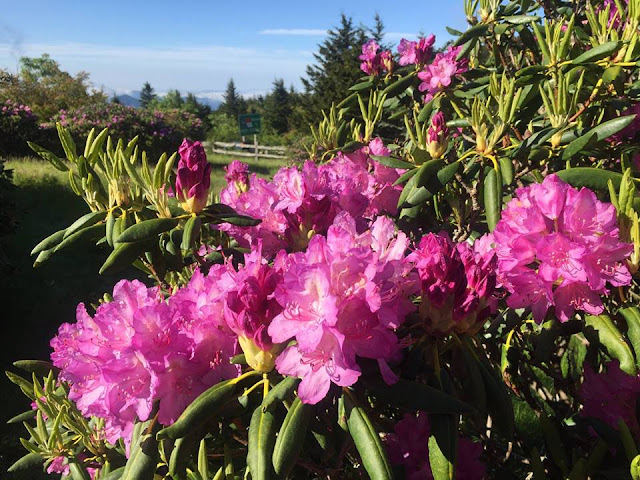If you know me, you know I'm far from a tree hugger. I enjoy nature, I like to fly fish, I obviously enjoy plants, but I'm not going to chain myself to a redwood in the face of a bulldozer.
That won't be changing anytime soon, but I'm really starting to get on board with the concept of stewardship.
Stewardship is the smart interaction of land, water, plants, and people - ensuring that you take care of all of them so they can take care of each other. From the gardener's perspective, stewardship is just smart. I think the greatest appeal for me is that good stewardship practices are cost effective and productive.
Whether it's the practice of right plant right place, turning yard clippings and kitchen waste into compost, using the right amount of fertilizer at the right times, or practicing smart watering, stewardship makes the most of what you have. And seemingly through those actions, you can minimize your impact while maximizing your garden's output.
I feel like I'm doing a good bit of this already, but I can definitely do more. I have a rain barrel and a compost pile. I use organic fertilizer, and I buy enough Black Kow to keep the company in business, but I could be more intentional about the amount I use and the timing of the application. I've also been lazy from time to time and sprayed Roundup instead of getting in and pulling weeds.
A resource we went over in the class that is definitely worth sharing:
TN Smart Yards: https://ag.tennessee.edu/tnyards/Pages/default.aspx
https://www.facebook.com/Tennessee-Smart-Yards-116536365071277/
The TN Smart Yards program is "program that guides and assists Tennessee residents and neighborhood associations on practices they can apply in their yards and common spaces to create healthier living spaces and communities."
It's based on 9 principles, a couple of which I briefly mentioned above.
That won't be changing anytime soon, but I'm really starting to get on board with the concept of stewardship.
 |
| Picture from Roan Mountain State Park's Facebook Page |
Whether it's the practice of right plant right place, turning yard clippings and kitchen waste into compost, using the right amount of fertilizer at the right times, or practicing smart watering, stewardship makes the most of what you have. And seemingly through those actions, you can minimize your impact while maximizing your garden's output.
I feel like I'm doing a good bit of this already, but I can definitely do more. I have a rain barrel and a compost pile. I use organic fertilizer, and I buy enough Black Kow to keep the company in business, but I could be more intentional about the amount I use and the timing of the application. I've also been lazy from time to time and sprayed Roundup instead of getting in and pulling weeds.
A resource we went over in the class that is definitely worth sharing:
TN Smart Yards: https://ag.tennessee.edu/tnyards/Pages/default.aspx
https://www.facebook.com/Tennessee-Smart-Yards-116536365071277/
The TN Smart Yards program is "program that guides and assists Tennessee residents and neighborhood associations on practices they can apply in their yards and common spaces to create healthier living spaces and communities."
It's based on 9 principles, a couple of which I briefly mentioned above.
- Right plant, right place
- Manage Soils and Mulch
- Reduce, Reuse, Recycle
- Water efficiently
- Use fertilizer appropriately
- Manage yard pests
- Reduce storm water runoff and its pollutants
- Provide for wildlife
- Protect water's edge
A final note about class four - our teacher for the night was the scientist who's the state coordinator for the UTIA Master Gardener program: Dr. Natalie Bumgarner. She was a great presenter, and I hear she's coming back for another class.
Thanks! Looking forward to some guidance and ideas. Please, keep blogging!
ReplyDelete